Abstract: I was slow in coming to see the desperate need of sustainability education, in part because of a missed opportunity in my field of outdoor adventure education (OAE). Although a burgeoning set of scholars agree that OAE is strategically placed to educate for sustainability, little change within our discipline has occurred. To encourage the transition, this paper has four central aims. First, I contextualize the implications at stake by summarizing recent scientific predictions around climate change. Second, I differentiate sustainable OAE into the sustainability of OAE (e.g., its practices, footprint size, etc.) and OAE for sustainability (e.g., curricula that promotes education about sustainability), noting that despite long-standing petitions to address both, progress has been made in neither. Third, I celebrate, with others, the inherent potential that OAE has to promote sustainability through its educating in natural environs, within living/learning communities, which utilize physical/sensory, affective and intellectual ways of knowing that inspire critical impulses. Fourth, I outline the central changes that need to occur in order to create sustainable OAE. The foremost change needed is for OAE programs to curricularly commit to promoting a sustainability worldview, including values, knowledge, dispositions, and agency related to environmental, social, and economic justice. However, change of this depth will require a revision of OAE course offerings that allow for multiple and prolonged participant engagement over time. Such engagement, then, necessitates that OAE shift its emphasis from remote and sublime landscapes, to programs that not only connect participants to the places in which they reside, but cultivate a care and affection for them. This appreciation can be created through a combination of adventurous learning and microadventures. In sum, “local landscapes, far more often, as a way of life” encapsulate the changes OAE might make in contribution to the global need of sustainability.
Continue Reading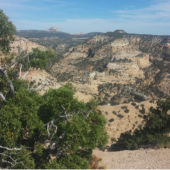
Climate change is a difficult subject to teach because it requires complex scientific understandings and is connected to personal beliefs (Spence, Poortinga & Pidgeon, 2012). It is important to teach students the science of climate change and impact their personal beliefs to produce behavior that will mitigate climate change. In this study pre and post surveys focusing on climate change understanding, belief, and behavior were administered. Interviews were also conducted. The quantitative and qualitative data were conflicting, but through triangulated data analysis learning design elements promoting Climate Change Literacy in higher education were identified. A conceptual model was developed with the learning design elements to improve the teaching of Climate Change Literacy. Findings depicted three design elements that increase students’ Climate Change Literacy: 1) Decreasing students’ psychological distance from climate change, 2) Utilizing students’ sense of place, and 3) Student investigation of their own research questions. Increasing students’ Climate Change Literacy is the critical first step in making sustainable societal transformations required for mitigating climate change, our most pressing environmental issue that impacts all people and the natural environment (Spence, Poortinga, & Pidgeon, 2012).
Continue ReadingHere we present a place-based culturally competent Geoscience Education Program (GEP) implemented in an Alaska Native (AN) community, in which we coupled Traditional Ecological Knowledge (TEK) with science, technology, engineering, and math (STEM) disciplines. The GEP was built upon collaborations with the school district, tribal government, community, and a National Science and Technology Center engaging K-12 students about relevant environmental topics of interest to the tribal community, such as the health of local riverine and coastal ecosystems. Our pedagogical approach promoted learning rooted in local history, culture, and language while encouraging students to build STEM expertise. This paper describes a successful Geoscience Education Research project using bioassessment of coastal marine habitats with shipworms as an indicator organism to monitor the health of coastal resources. As an authentic research project, the study not only produced real-world data that substantially benefited the tribal community, but also a novel scientific finding – that shipworms may facilitate bioassessment of marine environments.
Continue Reading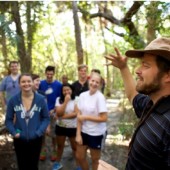
Abstract: In this article, I explore the future of higher education within the context of teaching and learning for sustainability. Challenges currently facing sustainability education are identified along with opportunities to face these challenges in ways that are transdisciplinary and holistic. I make the case that envisioning the future of sustainability education enables practitioners and educational theorists to better meet the needs of today’s generation without compromising the ability of future generations to meet their needs (World Commission on Environment and Development, 1987). My vision of the future of sustainability education in higher education is grounded in transformative, experiential, and place-based approaches. Engaging students in authentic inquiry in the classroom enables students to become better citizens and stronger problem solvers within the context of sustainability and beyond.
Continue Reading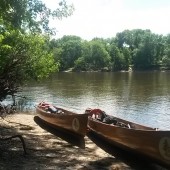
We report an evaluation of a place-based education (PBE) teacher professional development program that aimed to understand the perceived impact of PBE on students and teachers, constraints to implementation of PBE in schools, and strengths and limitations of the professional development program, as identified by teachers. Nine teachers, the full 2014 cohort of participants in Wilderness Inquiry’s PBE professional development program, completed a written reflection exercise and were interviewed following the implementation of a PBE lesson or unit developed as part of their professional development program. Findings indicate that teachers perceived PBE to have several important impacts on students, including stronger engagement in learning, enhanced collaboration, and heightened significance for the concepts learned. Teachers also perceived impact on themselves, including professional growth, sense of fulfillment and an expanded repertoire of teaching approaches. However, there were perceived constraints to implementing PBE, including support from peers and administrators, time, money, weather, and the composition of the class. This research adds to a growing body of research reporting positive impacts of PBE. Teachers’ feedback on the professional development program highlighted specific aspects of an effective professional development program. An enhanced understanding of the benefits of and challenges to PBE and program characteristics that maximize teachers’ time at a professional development program will help educators and curriculum developers to better support, develop, and encourage the implementation of PBE in standardized curriculum.
Continue ReadingSustainability education examines the confluence between society, environment, and economy. Yet, an overemphasis on economy has historically trumped attention to the other sphere’s needs. Such an imbalance, editors David Selby and Fumiyo Kagawa argue, calls for a radical reconceptualization of sustainability education. In their book, Sustainability Education Frontiers: Critical Transformative Voices from the Borderlands of Sustainability Education, they invite authors from ten different countries to discuss how sustainability education can be transformed to meet the needs of a diverse and interconnected world.
Continue Reading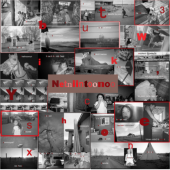
While place and culture endure, place and culture both change. This paper focuses on
the ways this paradox has shaped the idea of “resilience” for the Northern Arapaho people, and
the ways in which we have used it to guide educational programs. We first introduce “place” and
what it means to the Northern Arapaho people. We then offer three examples of culturally
responsive place-based programs that involve photography and changing technology. Finally, we
discuss the Arapaho word teiitooniine’etii (to live quietly, live calmly) and suggest that in both
enduring values, and adaptation to new technologies and times, we find resilience as a people.
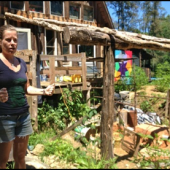
Place can be understood as space endowed with meaning, evoking notions of difference, connection, attachment, and emotion. As processes of modernity and globalization have increasingly homogenized cultural and natural landscapes, place is said to be ‘thinning’ or lost, linked to widening rifts between social and natural worlds. Such homogenization globally has sparked concerns, as people perceive landscape loss and increasing socio-ecological injustices. One such system of homogenization and unsustainability is industrial agriculture, a system that has shifted smaller scale, place-based, and diverse food systems to a global, mechanized one, distancing production from consumption, disrupting communities, and obscuring awareness, understanding, and care.
Yet, as consumer awareness increases and people desire to know where their food comes from and who produced it, inclusive place-based food systems can provide reconnections amongst producers, consumers, community, and the more-than-human world. In this paper, stemming from research in western North Carolina, we bring together literature from scholars of place, agro-food studies, education, and tourism to investigate the role of place in local food systems as well as the potential of small-scale sustainable agricultural places to serve as important educational spaces via community-based farm tourism. To better understand such potential, we draw on a study of the Blue Ridge Women in Agriculture High Country Farm Tour, an annual tour of small-scale sustainable working farms in the North Carolina High Country. Delving into participating producers’ philosophies, practices, and stories reveals passionate sustainable producers firmly rooted in place, while exploring consumer motivations for and impacts of participation makes a strong case for community-based farm tourism and other environmental tourism projects as an avenue for place-based education, community socio-ecological resilience, and sustainability across scales.
Continue Reading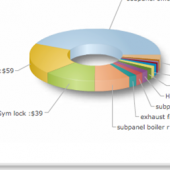
This paper will explore the Energy for ME program, funded by the Environmental Protection Agency and the National Science Foundation, which worked across formal and informal K-12 environments to bridge the gap between society, science, and the environment. Specifically, this article documents how Energy for ME integrates three experiential education pedagogies (place-based education, inquiry, and project-based learning) in combination with real-world electricity data in order to impact energy consumption within participating communities. Energy for ME schools and communities have saved over $135,000 in homeowner electricity costs, 900,000 lbs of carbon, and 1,000,000 kWh of energy) in electricity costs over the 3 years of the project.
Continue Reading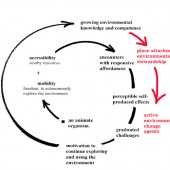
Learning in the outdoors has significant educational advantages for children in the Primary School years and the need to connect with nature is becoming increasingly prominent in research worldwide. Pro-environmental behaviour, especially in the early years, has been shown to have a causal relationship with connectivity with the natural environment. Place-based outdoor learning promotes a relationship with the natural environment and constructs deep environmental knowledge and understanding of the world that surrounds learners. Embedding Indigenous culture and knowledge into outdoor learning within Primary School programs enables local knowledge and understanding to permeate throughout activities in explicit and experiential ways. A place-based pedagogy recognises the importance of forming intimate relationships with place through regular visitations to the same outdoor environment. One of the many global challenges confronting teachers working in Primary schools is how to implement holistic learning into their educational programs. This paper explores how an Australian case study utilises place-based outdoor learning and environmental sustainability within the school curriculum.
Continue ReadingPDF:CirilloandHoylerSpring2014 Also see outside source for more information here Key Words: Sustainability Education, State of the Field, Shelburne Farms, Alternative Schools, Place-Based Education Education for sustainability (EFS) is a lens that considers environmental & ecological integrity, economic vitality, and social justice/equity. Building upon big ideas, such as systems-thinking, interdependence, and community, EFS uses […]
Continue Reading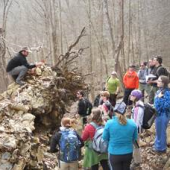
In this article I articulate what it means to understand curriculum as bioregional text. I utilize a theoretical mode of inquiry to explicate the values of bioregional education while integrating the discussion into the reconceptualized field of Curriculum Studies. The discussion addresses the value of direct experience, in our bioregion, and explains the significant contribution that can be drawn from developing a clearer understanding of our bioregional autobiography.
Continue Reading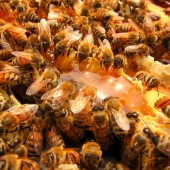
The Ashland Apiary Project is a multi-pronged, multi-aged learning design that uses beekeeping as a thematic avenue for hands-on experiential learning and the cultivation of land stewardship. The project is a student-led, collaborative effort by Southern Oregon University to establish an on-campus apiary that serves as a model of place-based and community-based education for a wide audience of students in an elementary, secondary, and collegiate setting. Through the Ashland Apiary Project, the pedagogic approach of “apiary-based learning” is considered in the field of sustainability education.
Continue Reading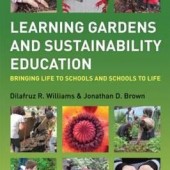
Tricia Francis-Morgan elegantly lays out all the power in Williams and Brown’s book. She gives just enough of a taste of how transformational learning gardens can be, in so many different ways, from the social to the physical, to the biological, that we are left with a desire to quickly get the book. At the same time, Francis-Morgan’s perspective on this pioneering book carries extra weight given her own experiences using learning gardens in the Caribbean.
Continue Reading
This article provides an overview of the primary themes embedded within bioregionalism. The framework for the paper is built around the CIDER acronym—compiled by the author—and includes: Connecting to our “life place,” inquiring into the interplay of cultural and ecological landscapes within the bioregion, decentralizing, emphasizing natural boundaries, reinhabiting as a culminating concept and practice. The CIDER acronym is then discussed in the context of applying bioregional thinking and practice to the broad field of education.
Continue Reading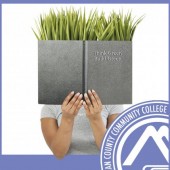
PDF: le Roux Ohm Winter2013 Abstract: Drawing on various dimensions of place, pedagogies of place, and the relationship between place and design, this article presents a case study of place-based learning in a career-oriented higher education program—the Green Building Maintenance and Management program at SUNY Sullivan. This program is rooted in the Catskills, an iconic […]
Continue Reading